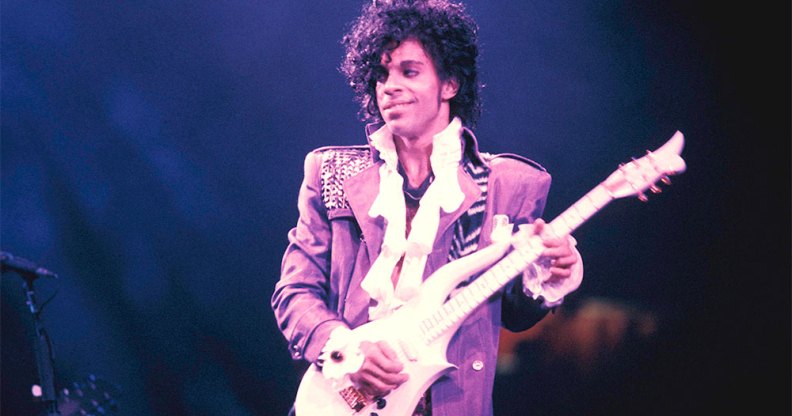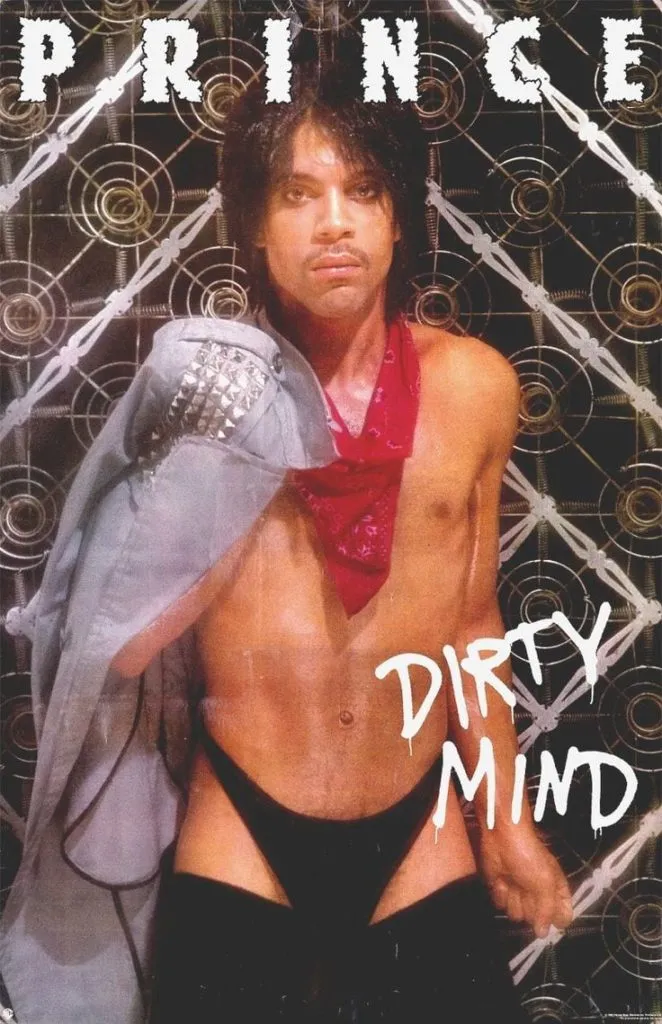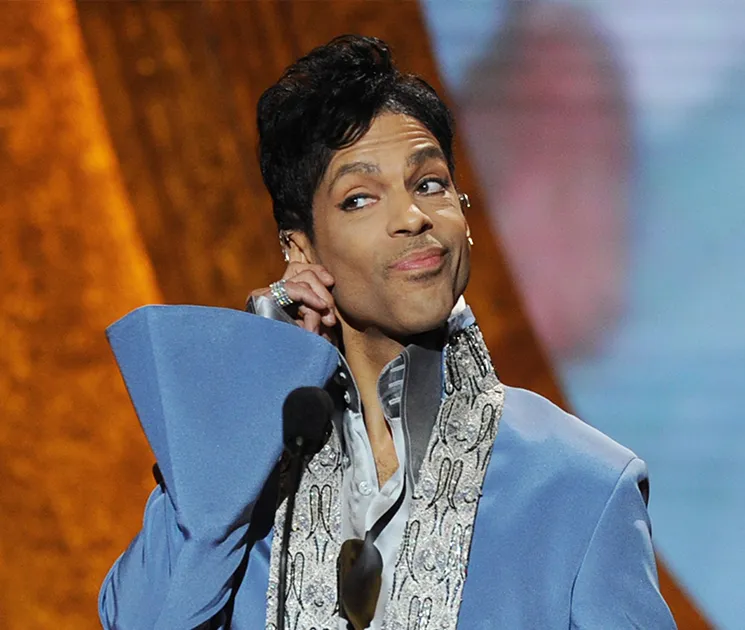Years after his death, Prince’s queer legacy and influence on LGBTQ+ culture is as muddled as ever

Prince performing on stage during his Purple Rain tour. (Getty)
Prince passed away on April 21, 2016, leaving behind a fractured relationship with the gay and wider LGBTQ+ community which had once held him so dearly.
On the cover of Prince’s third album, Dirty Mind (released in 1980), the singer stares seductively down the barrel of the lens, nude but for a biker jacket, high-waisted briefs and a pair of thigh-high stockings cropped just out of shot.
Today, he’d probably be accused of appropriating a queer aesthetic, but at the time his look was boundary-breaking, especially for a Black man.
The image set the tone for the record and for what Prince would come to stand for in the years that followed.
Like his British contemporaries David Bowie and Boy George, he was becoming a symbol of androgyny and sexual fluidity.
He titillated with apparent references to his own preferences when he sang about a rough break-up on “When You Were Mine”, lamenting: “I never was the kind to make a fuss / When he was there, sleeping in-between the two of us.”

Prince left fans wondering whether he was gay or straight
For a while Prince dodged questions about his own identity, asking: “Am I Black or white / Am I straight or gay?” on the title track to Controversy (1981), but not offering any answers.
On “I Would Die 4 U”, from 1984’s Purple Rain, he’d make an apparent reference to gender fluidity, with the lyrics: “I’m not a woman, I’m not a man / I am something that you’ll never understand”, even dropping his name for an unpronounceable symbol comprised of the symbols for male and female in 1993.
Throughout this time, Prince was rightly regarded a queer icon, and certainly an ally.
But in his later years there was a notable shift. After becoming a Jehovah’s Witness around the turn of the millennium, he dropped songs he deemed too sexualised from his repertoire and even stopped swearing.
Many found his new-found faith at odds with his inclusive image – the Jehovah’s Witness faith considers same-sex relations a sin.
Prince’s gay bandmate claimed he told her to reject her lesbian identity
Wendy Melvoin and Lisa Coleman are two lesbian women who played with Prince as part of his Revolution band in the early ’80s.
In 2000, they tried to put together a reunion tour, but were disappointed by their former frontman.
Melvoin told the Tribune in 2004: “He declined because of my homosexuality and the fact I’m half-Jewish.”
According to Billboard, Prince told her he wanted her to hold a press conference rejecting her queerness and announcing her conversion to the Jehovah faith.
But six years later, they were next to Prince as he played “Purple Rain” at a London awards show.

Prince accused of homophobia after appearing to dismiss same-sex marriage in 2008
Prince was accused of homophobia again following comments he made to The New Yorker in 2008.
In the article, the interviewer, Claire Hoffman, wrote that she asked him for his take on social issues such as LGBTQ+ rights and abortion.
“God came to earth and saw people sticking it wherever and doing it with whatever, and he just cleared it all out. He was, like, ‘Enough,'” he was quoted as replying.
The comments prompted a backlash, with many accusing Prince of turning his back on the community that helped make him a star, and that he plundered during his early career.
But sources close to him refuted that he meant to comment on equal marriage, and insisted he was misquoted.
Interviewer wasn’t allowed to use a tape recorder
Hoffman confirmed that she did not used a tape recorded for the interview or take notes on Prince’s request.
“He wouldn’t let me,” she said, according to Minnesota’s Star Tribune. “I walked out and sat in my car and wrote for an hour.”
Neal Karlen — who interviewed Prince for Rolling Stones in 1985, when he was allowed to record their conversation, and in 1990, when he wasn’t – suggested that Hoffman might have misremembered his words.
“Did she talk to him for five minutes?” he told the Tribune.
“She probably was asking him about California repealing gay marriage, and he’s had his own bad luck with marriage.
“It seemed like throwaway [lines].
When you think he’s never made one statement that’s come to rebound on him, why would he want to say that? There must be some reason he said that.
For her part, Hoffman has maintained that her reporting was accurate, and that Prince did dismiss equal marriage.
Five years later, in 2013, Prince spoke to the Tribune himself, shortly after Minnesota made same-sex marriage legal.
“What he didn’t discuss were some things Minnesotan,” the paper wrote.
“He dodged questions about the state’s new marriage-equality law, the influence of Minnesota on his music and the impact that Bob Dylan had on him.”
After his death, of an accidental painkiller overdose, Frank Ocean paid tribute to his idol.
“He was a straight black man who played his first televised set in bikini bottoms and knee-high heeled boots, epic,” Ocean wrote.
“He made me feel more comfortable with how I identify sexually simply by his display of freedom from and irreverence for obviously archaic ideas like gender conformity.”
Like all humans, Prince was no doubt flawed and complex, and as he is no longer with us, it’s impossible to say what his true feelings were.
But when considering his legacy at a whole, it’s undeniable that he had a positive impact on LGBTQ+ people and changed culture for the better.

